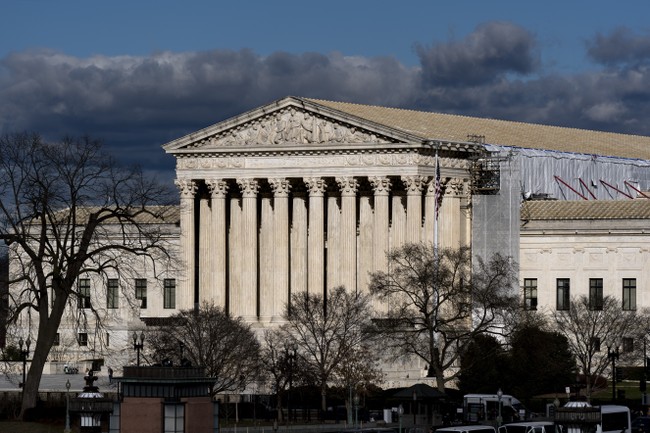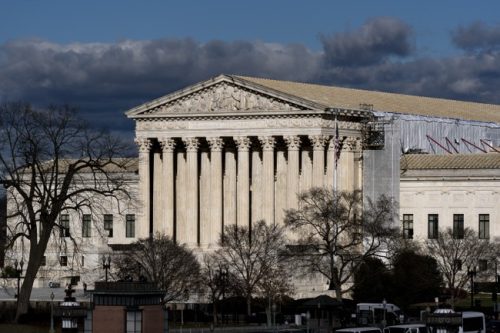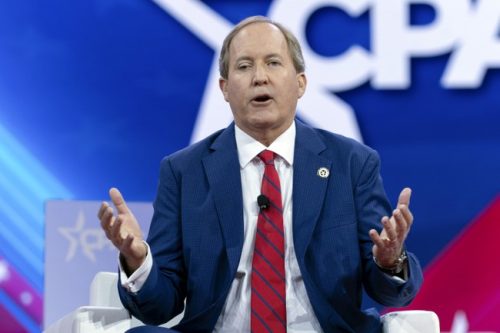The Supreme Court revived the Trump-era passport policy in a 6-3 decision, ruling the government may require passports to display an individual’s sex at birth instead of a self-selected gender marker; the order reverses two lower courts and rejects the First Circuit’s refusal to stay Massachusetts’ injunction.
The court’s move came after the State Department under the Biden administration began allowing an X marker for gender identity in 2021, a policy shift that some states challenged as inconsistent with federal identification rules. Massachusetts secured a preliminary injunction to block enforcement, and the First Circuit declined to pause that injunction while the government appealed. The Trump administration sought emergency relief, and the Supreme Court granted the stay.
The unsigned order runs 13 pages and emphasizes that the government would suffer irreparable injury without a stay, a legal standard the justices found persuasive in this dispute. The opinion frames the passport sex marker as an attestation of a historical fact rather than an act of discrimination. This case is now a clear reminder that the high court will step in when lower courts block federal policy changes in politically charged areas.
“Displaying passport holders’ sex at birth no more offends equal protection principles than displaying their country of birth—in both cases, the Government is merely attesting to a historical fact without subjecting anyone to differential treatment,” the order said. “And on this record, respondents have failed to establish that the Government’s choice to display biological sex “lack[s] any purpose other than a bare . . . desire to harm a politically unpopular group.”
The practical result is straightforward: passports will once again reflect biological sex for those applicants affected by this policy dispute, pending further proceedings. That outcome aligns with an emphasis on clear and consistent identity documentation at the federal level. It also undercuts initiatives from the Biden administration that treated gender markers as a matter of self-identification across federal records.
Supreme Court Justices Elena Kagan, Ketanji Brown Jackson and Sonia Sotomayor dissented. Justice Jackson argued forcefully that the government’s position treated gender identity as meaningless for identification purposes, writing, “The Government also insists that gender identity is not a meaningful basis for identification—strangely begging the question why sex markers are required on passports at all.” She added, “The documented real-world harms to these plaintiffs obviously outweigh the Government’s unexplained (and inexplicable) interest in immediate implementation of the Passport Policy.”
The split highlights the broader cultural and legal fight over how federal agencies record sex and gender on official documents. For conservatives, the ruling restores a factual baseline for identity documents and checks an expansive view of administrative discretion. For dissenters, the decision raises concerns about tangible harms to people who rely on gender-affirming documentation to avoid real-world discrimination and danger.
Legally, the high court’s stay reverses two lower-court rulings that had blocked the policy, and it signals the justices’ willingness to intervene when the government claims imminent, irreparable injury from being prevented for now from implementing a policy. The stay does not resolve the merits of the underlying dispute, but it preserves the government’s chosen approach to passport markers while appeals proceed. Expect further briefing and possible full merits consideration down the road.
Politically, the decision is a clear win for the Trump administration and for conservative policymakers who have pushed back against what they call intrusive, ideologically driven rules across federal agencies. Restoring the birth-sex marker on passports fits a wider effort to roll back rules that prioritize identity-based classifications over biological categories in official documents. Conservatives will point to this case as evidence that courts can correct executive overreach when it changes long-standing identification standards.
The Supreme Court told President Trump he can move forward with a policy requiring U.S. passports to record a person's biological sex and doing away with gender-neutral markers, saying Thursday that he was acting under his foreign policy powers. https://t.co/m0yRWif3c4
— The Washington Times (@WashTimes) November 6, 2025
Outside the legal arguments, the dispute reflects competing priorities: stability and uniform identification versus accommodations for gender-diverse Americans facing real obstacles. The court’s short-term fix favors the government’s argument about the need for consistent, historically grounded records. The ruling will shape how federal documents handle sex and gender for the foreseeable future, even as the underlying legal fight continues.






